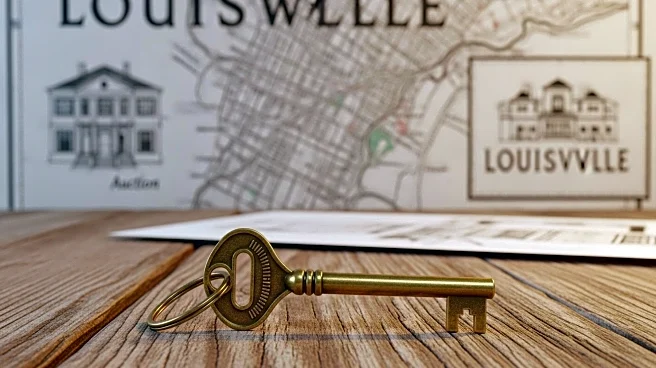What's Happening?
Several historic properties in Louisville are set to be auctioned, including a nearly 150-year-old downtown building and an 18th-century home. These sites offer unique opportunities for redevelopment and preservation. The Bashford Manor Inn, built in 1796, is a licensed bed and breakfast with rich historical significance, including ties to Abraham Lincoln. The downtown Louisville building, previously listed at $1.48 million, will be auctioned with a starting bid of $750,000, offering mixed-use potential. These auctions highlight the city's rich architectural heritage and the potential for revitalization.
Why It's Important?
The auction of these historic properties presents opportunities for investors and developers to contribute to the preservation and revitalization of Louisville's architectural heritage. Redeveloping these sites can enhance the city's cultural landscape and attract tourism, boosting the local economy. The auctions also reflect broader trends in real estate, where historic properties are increasingly valued for their unique character and potential for adaptive reuse. Successful redevelopment can serve as a model for preserving historical sites while meeting modern needs.
What's Next?
Following the auctions, developers may explore various options for repurposing these properties, balancing preservation with modern functionality. Community stakeholders, including local government and preservation groups, may engage in discussions to ensure that redevelopment aligns with cultural and historical values. The outcomes of these auctions could influence future real estate practices in Louisville, encouraging investment in historic properties and promoting sustainable urban development.
Beyond the Headlines
The auction of historic properties in Louisville underscores the importance of preserving cultural heritage in urban development. Ethical considerations, such as maintaining architectural integrity and respecting historical significance, will play a crucial role in redevelopment decisions. This event may inspire broader conversations about the value of historical preservation in contemporary society, highlighting the need for policies that support sustainable and culturally sensitive development.










